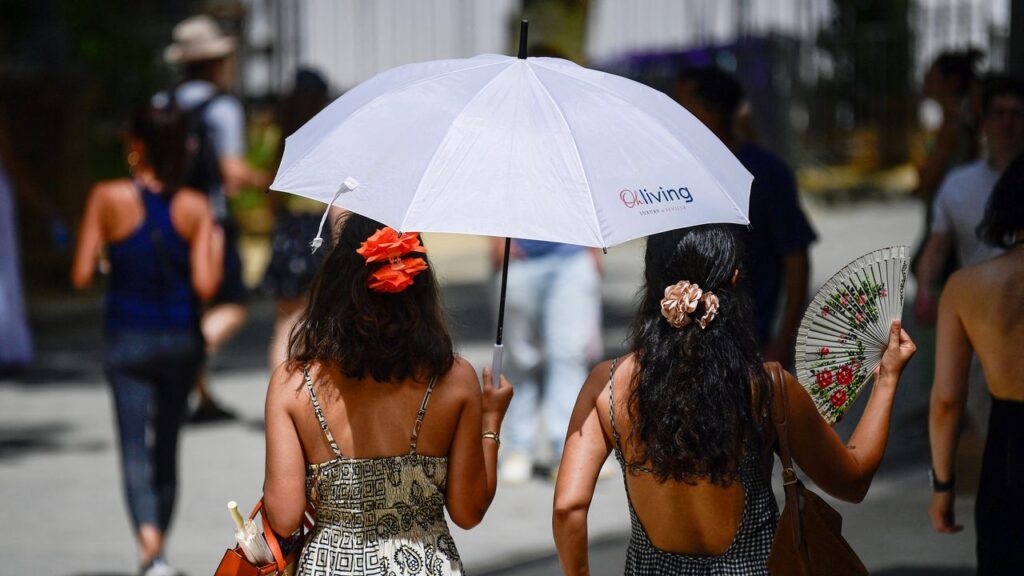France
The French government’s meteorology department has a number of red weather warnings in place—including for the capital of Paris, where the temperature was forecast to reach a sweltering 104 degrees on Tuesday. Other affected areas include large swathes of the Loire Valley, as well as the Grand Est region—both of which are inland and have experienced heat that well exceeds 86 degrees. Nearly 2,000 schools have also been shut as a result of the hot weather. The rest of the country is largely under amber alert. Brittany is currently the only region without any warnings in place.
Turkey
More than 50,000 people were evacuated as wildfires ravaged Turkey’s western province of Izmir. As of July 1, the fires have been brought partially under control but have not been completely extinguished. The fire caused the temporary closure of Izmir Adnan Menderes Airport, resulting in dozens of canceled flights.
The Balkans
Those in the Balkans have also witnessed record-breaking temperatures of over 104 degrees, with Serbia encountering its hottest day since the 19th century and warning that drought could threaten harvests; tourists in Montenegro retreating to the cooler mountainous region of Durmitor in the north; and Croatia also battling wildfires.
Can I get my money back if my vacation is affected by the heatwave?
A spokesperson for British insurance company Aviva told Condé Nast Traveller UK that while travel insurance is designed to help customers in the case of an unforeseen emergency, it doesn’t automatically mean that everything is covered by your policy.
They explained: “If, as a result of the heatwave, you were to fall ill abroad, your travel insurance would cover medical treatment, as well as the cost of getting you home if medically necessary. In this scenario, travel insurance would also cover any unrecoverable costs relating to your unused travel and accommodation.”
“Travel insurance won’t cover you, however, if you decide not to travel and cancel your holiday because of the heatwave. Instead, it may be worth contacting the airline or travel provider to see if you can reschedule your trip for another date.”
How to stay safe in extreme heat
There are a number of provisions you can take to ensure your safety in adverse weather, including:
- Avoid going outside—especially between 11 a.m. and 3 p.m., when the sun is at its hottest
- Stay in the shade where possible
- Wear loose-fitting clothes and breathable materials (see our guide on what to pack for hot and humid destinations)
- Drink plenty of fluids and always carry a travel-friendly water bottle with you
- Keep your home or hotel room cool—close windows, draw the curtains, blinds or shutters, and use the air-conditioning unit when you are in your room
- Invest in hot-weather travel accessories like sunglasses and a wide-brimmed hat
- Wear sunscreen and be sure to regularly reapply it
For more advice on how to stay safe in a heatwave, you can visit the World Health Organization’s website here, or the NHS website here.
This article was originally published on Condé Nast Traveller UK. This is a developing news story and will be updated with more information as it becomes available.
https://www.cntraveler.com/story/travel-advice-during-europe-heatwave-2025


